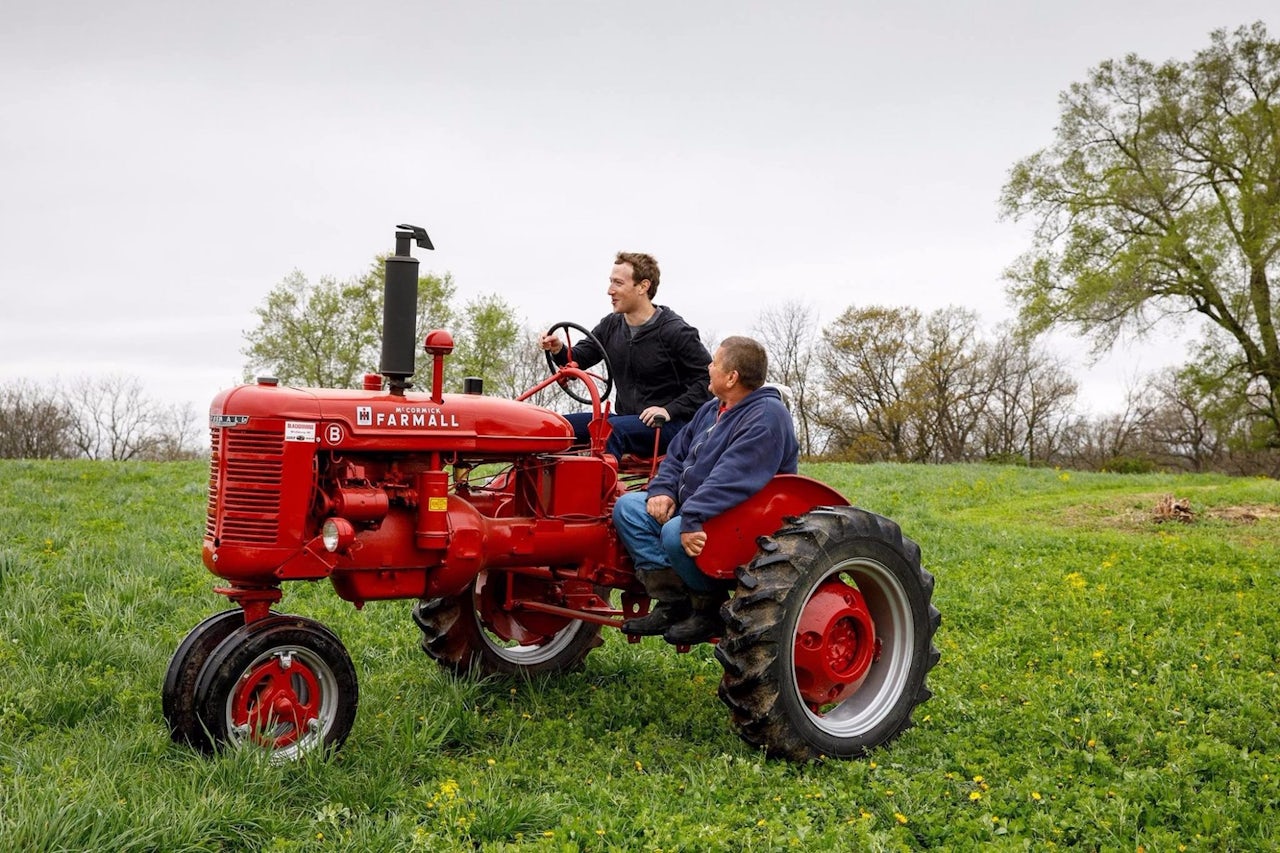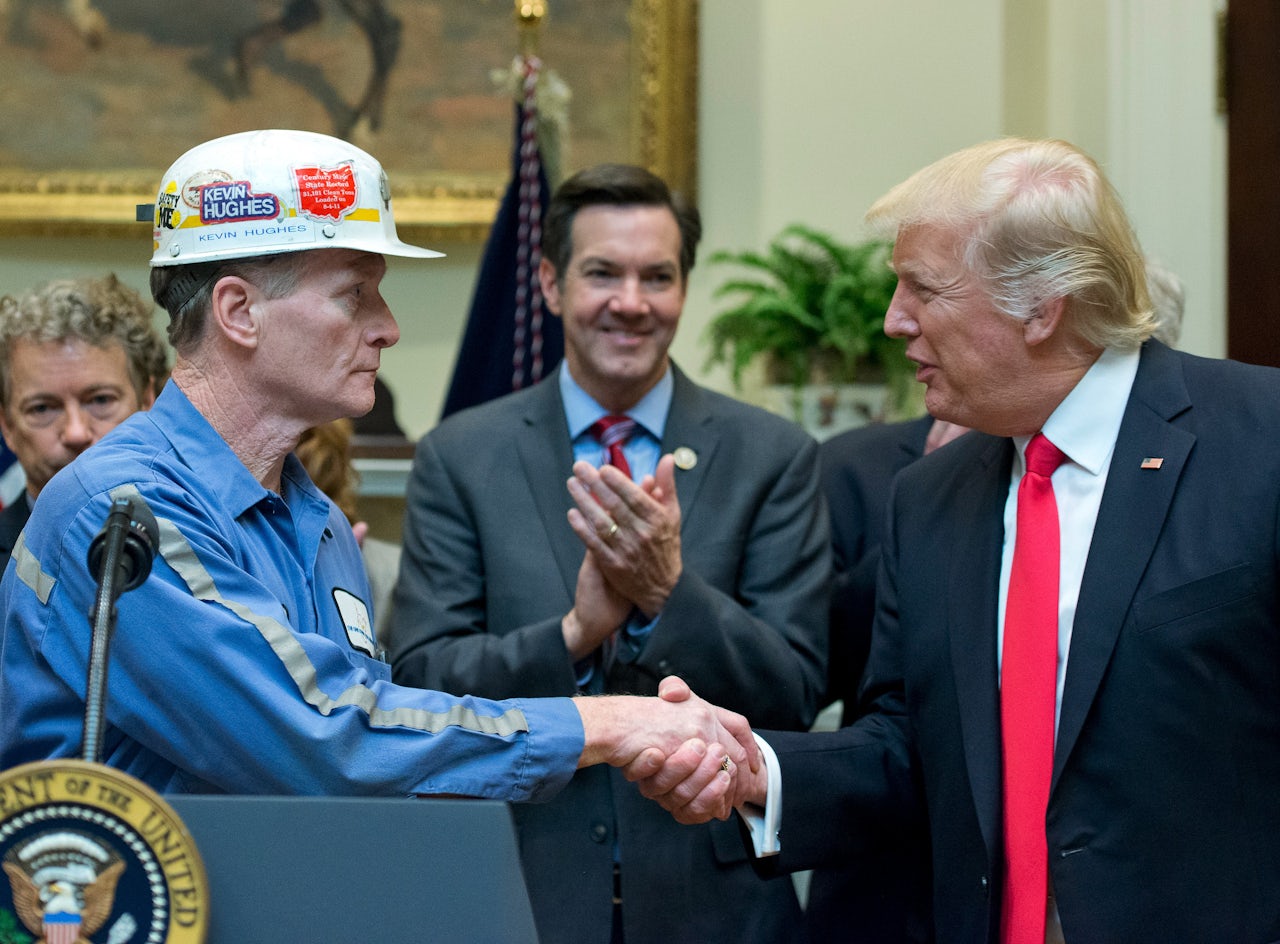In response to the ascendancy of the Trump Train, and particularly in the aftermath of Hillary Clinton’s stunning defeat last year, “coastal elites” suddenly developed an interest in bridging the divide between themselves and the plain rural folk who (apparently singlehandedly) elected our president. As a result, a new genre of political writing materialized: the tone-deaf, and ultimately useless, anthropological exploration of Real America. Blowhard pundits adore this narrative — it allows them to blame both sides for the current state of the country, call for bloodless civility, and indulge in their favorite pastime: inventing riveting conversations with service workers. These modern-day anthropologists relish any opportunity to talk about their “unique” experience in terrible op-eds and paperbacks destined for the bargain bin. So many of these explorers have journeyed through the heartland in order to interview a half-dozen yokels and feign awe at their rustic wisdom since Trump was elected that it’s now time to examine them in a piece, which you are reading now.
Out of all of these stunts, Mark Zuckerberg’s trek across America has been the most high-profile and the most transparently self-serving. The Facebook founder pledged in January to spend a year landing his private plane in every state he had not yet visited, and gave the following corporate-speak as rationale: “We could all benefit from listening and learning about how more people are living, working, and thinking about the future.” Zuckerberg’s takeaways from these visits were even less substantive: “We are all part of many communities. The strength of these local communities is what makes up our social fabric and that's what enables us to come together as a global community as well,” he wrote after touring Alabama in February. To any outside observer, the purpose of this project was to give Zuckerberg’s team of professional photographers an opportunity to record proof of him feeding cows, riding tractors, wearing a NASCAR uniform, and awkwardly attending services at a black church. Whether Zuckerberg conducted this PR campaign to prepare for a presidential run or just to burnish his personal brand has yet to be seen.
— Alex Nichols (@Lowenaffchen) October 27, 2017
The Huffington Post also opted to tour the country this year in a project dubbed “Listen to America,” which was described by the site’s editor-in-chief as “hugely ambitious.” The project’s goal, according to a statement on the site, was to create “moving, multimedia storytelling that showcases what we share as Americans, rather than what divides us.” Starting in September and ending this week, a half-dozen HuffPost writers took a bus through America’s innards. So far, the results of their brave journey have been predictable. The project has spawned a few good pieces, including an excellent article on the effects of an Arizona coal plant shutdown on the Navajo and Hopi nations, but “Listen to America” has mostly functioned as a pretentious tagline for standard content-farm garbage. In Lincoln, Nebraska, HuffPost probed strangers for quotes like “Great community, great people. There’s always kinda something going on.” and “I’m mainly here for school and then work ... It’s a family city and I love it.” Their stop in New Orleans inspired hard-hitting investigative journalism like “5 Amazing Places To Shop In New Orleans, Louisiana.” In Albuquerque, they introduced readers to “The Ultimate Albuquerque, New Mexico, Road Trip Playlist,” most of which was identical to that week’s Billboard charts. As it turns out, the unique local cultures of Albuquerque, New Orleans, and Odessa, Texas are all best represented by Cardi B’s “Bodak Yellow.”
The most incoherent offering thus far has been former NPR CEO Ken Stern’s Republican Like Me: How I Left the Liberal Bubble and Learned to Love the Right, published last month and commemorated with an appearance by Stern on Tucker Carlson Tonight. According to the book’s description, Stern “set out for conservative America to find out why these people are so wrong about everything. It turns out, they weren’t.” The book’s contents suggest a different motivation. Republican Like Me reads less like an anthropological exploration of right-wing America and more like a calculated cash-grab. Very little gonzo journalism takes place, and the few examples Stern relates are less than enlightening. “If I didn’t live in ‘real America’ or even ‘normal America,’ where could I go to find it?” he asks. What’s odd is that from the very beginning, Stern seems to be on excellent terms with nearly everyone in the right-wing media, even though he describes himself as living in a liberal bubble. His recommendation for a first stop in his trip through “real America” came from none other than Carlson, who is from San Francisco and whose father was the ambassador to the Seychelles. Carlson instructed Stern to experience gun culture in Texas, where he soon found himself hog hunting and walking through a gun show where vendors sold “targets shaped like Hillary Clinton” and paintings of Nathan Bedford Forrest, an early leader of the Ku Klux Klan. How stereotypical experiences like this altered Stern’s ideology is not fully explained.
Most of Republican Like Me consists of standard center-right talking points, and these are very loosely connected to Stern’s tales of megachurches and hog huntin’. This suggests that Stern either believed all these things to begin with, as many wealthy Yale grads in gentrified D.C. neighborhoods do, or that he opportunistically adopted right-wing viewpoints in order to sell books to Tucker Carlson’s audience. The ideology that permeates Republican Like Me resembles the bowtied establishment conservatism of coastal NeverTrumpers (and indeed, this set provides the bulk of the interviews) far more than the populist insurgency Stern purports to chronicle. Like the Never-Trump set, Stern condemns the most extreme segments of the right, but pairs each condemnation with an assertion that liberals are just as bad. He scoffs at the Creation Museum’s exhibits on how Noah’s Ark managed to hold dinosaurs, but uses it as a springboard to scold liberals for “climate-change alarmism.” The artifice displayed in Republican Like Me is such that when Stern scolds National Review’s Kevin D. Williamson for writing in March 2016 that “The white American underclass is in thrall to a vicious, selfish culture whose main products are misery and used heroin needles,” Williamson’s sneering classism is almost refreshing — his hatred for his rural Texas upbringing was at least spawned somewhere other than the Ivy League (Stern went to Yale Law).
Far more revealing than the rural safari is the meta-rural safari. When watched closely, the coastal chronicler of rural decay is shockingly cavalier in revealing his biases. In The Atlantic last month, Molly Ball described her time following Third Way, a centrist think tank, as they traveled through Wisconsin to prove yet again that “if Americans would only listen to each other, they would find more that united than divided them.” The actual Wisconsinites Third Way talked to told a different story — a group of union members, rather than calling for bipartisan entitlement reform, attacked Republican Gov. Scott Walker for slashing social services and eroding union rights, and Democrats for doing too little to help the working class. Third Way’s subsequent report all but ignored their complaints. As is the wont of Beltway centrists, they projected their own failed ideology onto everyone they interviewed. The people of Wisconsin, it turns out, want fewer government hand-outs, less “partisan squabbling,” and more “civil discourse.”
Far more revealing than the rural safari is the meta-rural safari.
These treks through the heartland necessarily come from a place of insincerity, or at least willful suspension of critical thought. The idea behind this practice — that random white people in landlocked states are privy to some secret, suppressed knowledge inaccessible to New Yorkers or San Franciscans — is based on so many faulty assumptions that it’s difficult to imagine anyone with above-average intelligence believing it in earnest. Most of the locales doted upon by coastal writers had little to no effect on the 2016 election. Yes, the coal counties of Kentucky and West Virginia voted Republican in 2016, but they voted Republican in 2012 and 2008. In addition, Trump’s true base wasn’t the “white working class,” it was comfortable suburbanites, who are statistically far more likely to vote than the poor. These suburbanites live in suburbs, which surround cities. This is apparently news to Stern and company, who seem to think Republicans can only survive 1,000 feet above sea level. Western Pennsylvania came out for Trump, but so did most of Eastern Pennsylvania. Suffolk County, New York, which comprises most of Long Island, went for Trump in 2016, as did Staten Island. Stern went to the Urbana conference of evangelicals in St. Louis, Missouri, but he could have driven less than an hour to Urbana, Maryland, located in suburban Frederick County, which has voted for Republicans in every election since 1968.
These disingenuous heartland narratives do nothing to heal the divisions between urban and rural America. That the wisdom they excise from the plebeians just happens to support the bland professional-class centrism of the authors — whether it be Third-Way Clintonism or Georgetown elitism — is unsurprising, because learning was never the goal. The goal was to dress up the same old failed Beltway ideologies in patronizing safari narratives. None of this will help anyone fight Trumpism or win elections on centrist platforms anytime soon, but in a sense, they did manage to bring us together. For a few months, a commonality between rural bumpkins and coastal elites appeared — they both had to stomach interacting with the dregs of the D.C. media class.

